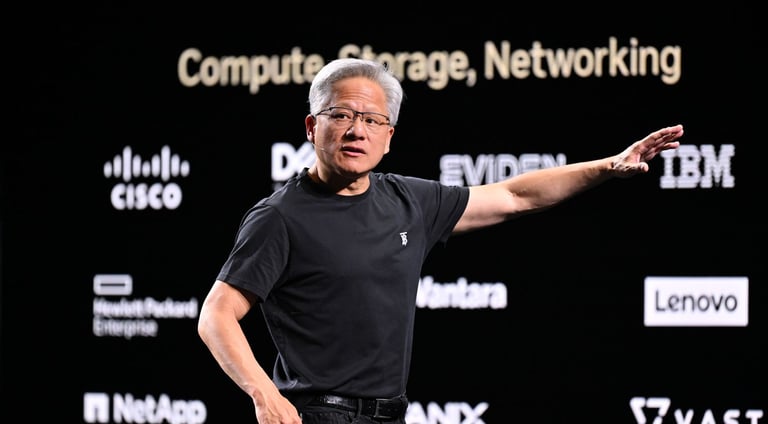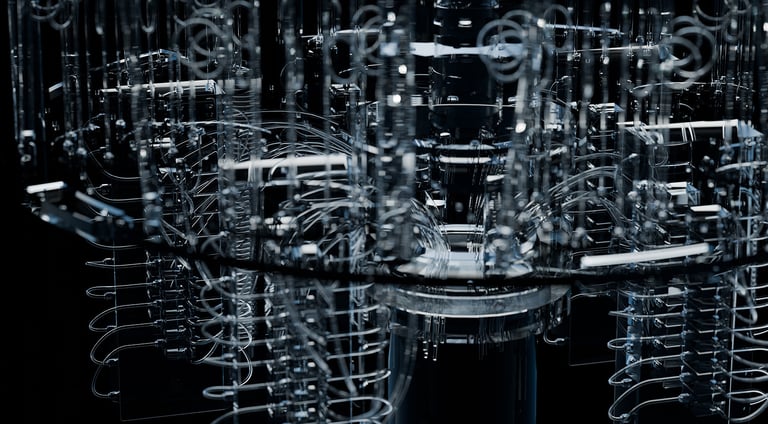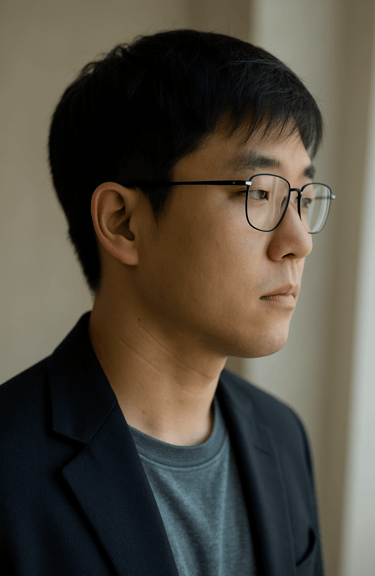Quantum Computing Is Hitting Its Inflection Point, Are Our Systems Ready for What Comes Next?
Quantum computing is reaching a tipping point, raising urgent questions about not just defending autonomous systems, but designing them to be trusted from the start.
OPINION
David Kim
6/12/20253 min read


On June 11, 2025 NVIDIA CEO Jensen Huang made a bold but measured statement: quantum computing is reaching an inflection point. That phrase: “inflection point” means something very specific in deeptech. It signals a shift from speculative R&D to tangible systems, from theoretical vulnerability to practical readiness.
At ArbaLabs, we spend a lot of time thinking about what it means to build trust into the systems that matter most especially at the edge, where connectivity is limited and decisions have real-world consequences. So when someone like Huang puts quantum computing on the mainstream trajectory, it’s worth reflecting on what it means not just for AI, but for the security and resilience of infrastructure overall.
Quantum Reality: Not Hype, But Pressure
Quantum computing isn’t coming - it’s arriving. Slowly, awkwardly, and still heavily constrained by physics and error rates. But it’s arriving nonetheless.
Huang’s comments made one thing clear: we’re entering a phase where hybrid quantum-classical architectures will start solving real-world problems. That has serious implications for sectors that rely on cryptographic trust - including aerospace, defence, and decentralised digital infrastructure.
Why? Because quantum computing isn’t just a breakthrough in speed. It’s a threat to integrity, especially when systems built today aren’t ready for what tomorrow’s hardware can break.
Trust at Risk: What Quantum Means for System Design
Today’s embedded systems, AI accelerators, and blockchain infrastructure are often built on cryptographic assumptions that may not hold in a post-quantum world. Public-key algorithms like RSA and ECDSA, widely used to secure everything from smart contracts to satellite data signatures, could become obsolete faster than expected.
This isn’t just a Web3 problem. It’s a systems-level design problem. For any organisation deploying infrastructure meant to last 10+ years, whether it’s a nanosatellite constellation or an autonomous sensor network, post-quantum readiness has to be part of the roadmap.
At ArbaLabs, we believe trust is not something you audit after the fact. It has to be embedded, resilient, verifiable, and future-proof by design.
The Flip Side: Quantum as an Enabler of New Forms of Assurance
It’s not all risk.
Quantum technologies may also unlock more advanced, more efficient methods for proof, consensus, and distributed verification. Combined with edge AI and secure hardware, there’s huge potential for systems that don’t just defend against quantum threats, they leverage them for next-generation trust.
From quantum-generated randomness to quantum-safe hashes and decentralised coordination across high-risk networks, the architecture of secure infrastructure is about to change. We’re paying close attention.
Closing Thought
Huang called it an inflection point — and we agree. But it’s not just quantum computing that’s changing. It’s our relationship to certainty, to verification, and to the systems we trust to run the world.
At ArbaLabs, our mission has always been to make that trust visible, whether in orbit, in the field, or in code.
The time to prepare for quantum isn’t when it breaks things.
It’s now.
David Kim
📩 david@arbalabs.com
🌐 arbalabs.com


#ArbaLabs #QuantumComputing #SecureInfrastructure #DeepTech #EdgeAI #AIIntegrity #TrustedAutonomy #QuantumResilience #FutureProofSystems #PostQuantum #DigitalTrust
About Author:
David is a global tech analyst and storyteller exploring how frontier technologies like edge AI and blockchain are shaping our collective future. At ArbaLabs, he curates insights, trends, and conversations that bridge innovation with society. His focus: making complex ideas accessible and inspiring curiosity across sectors.

